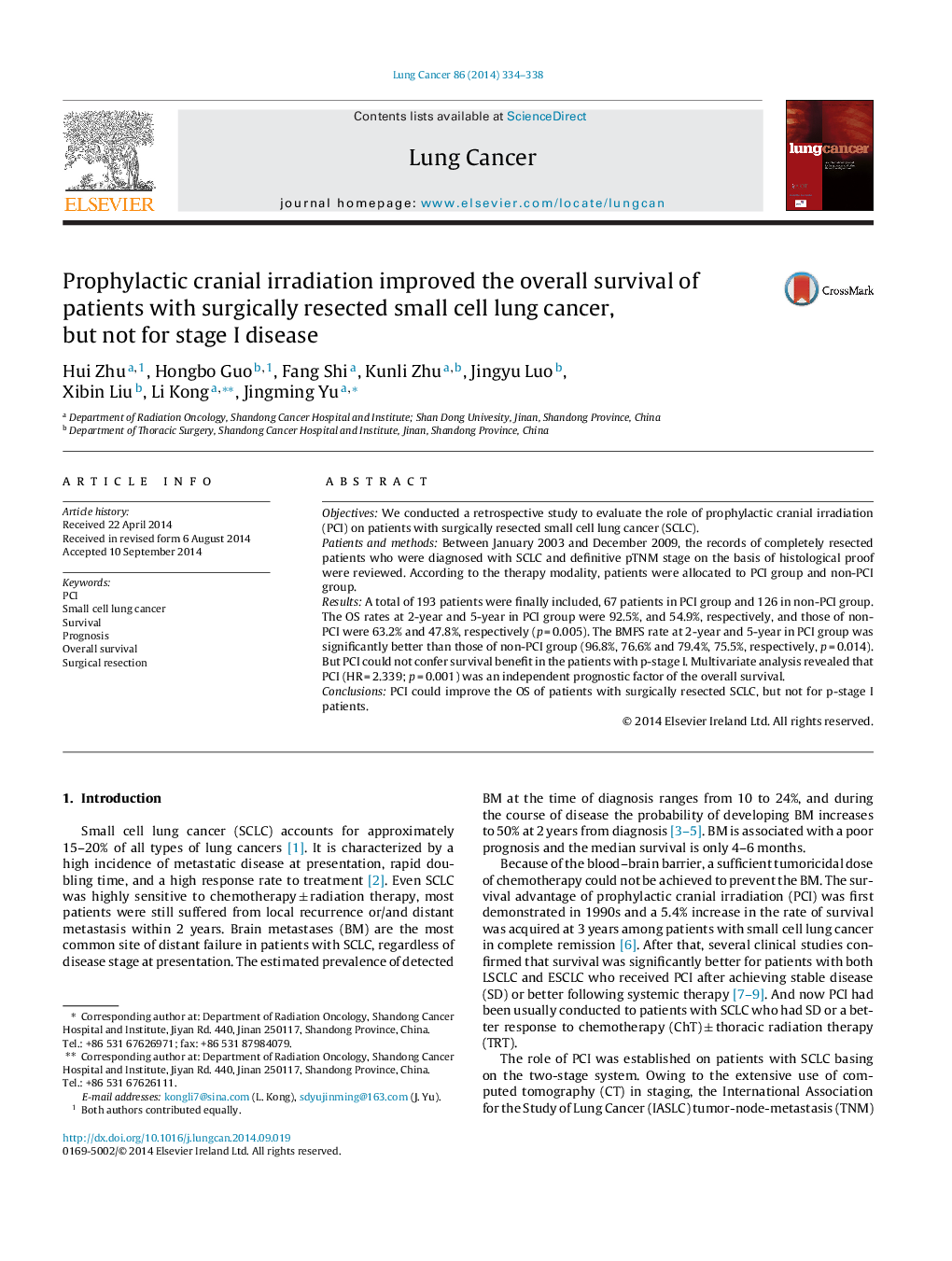| Article ID | Journal | Published Year | Pages | File Type |
|---|---|---|---|---|
| 2140838 | Lung Cancer | 2014 | 5 Pages |
•PCI could improve the OS of patients with surgically resected SCLC.•PCI could not improve the OS of patients with p-stage I SCLC.•Multivariate analysis revealed that PCI was an independent prognostic factor of the overall survival.
ObjectivesWe conducted a retrospective study to evaluate the role of prophylactic cranial irradiation (PCI) on patients with surgically resected small cell lung cancer (SCLC).Patients and methodsBetween January 2003 and December 2009, the records of completely resected patients who were diagnosed with SCLC and definitive pTNM stage on the basis of histological proof were reviewed. According to the therapy modality, patients were allocated to PCI group and non-PCI group.ResultsA total of 193 patients were finally included, 67 patients in PCI group and 126 in non-PCI group. The OS rates at 2-year and 5-year in PCI group were 92.5%, and 54.9%, respectively, and those of non-PCI were 63.2% and 47.8%, respectively (p = 0.005). The BMFS rate at 2-year and 5-year in PCI group was significantly better than those of non-PCI group (96.8%, 76.6% and 79.4%, 75.5%, respectively, p = 0.014). But PCI could not confer survival benefit in the patients with p-stage I. Multivariate analysis revealed that PCI (HR = 2.339; p = 0.001) was an independent prognostic factor of the overall survival.ConclusionsPCI could improve the OS of patients with surgically resected SCLC, but not for p-stage I patients.
